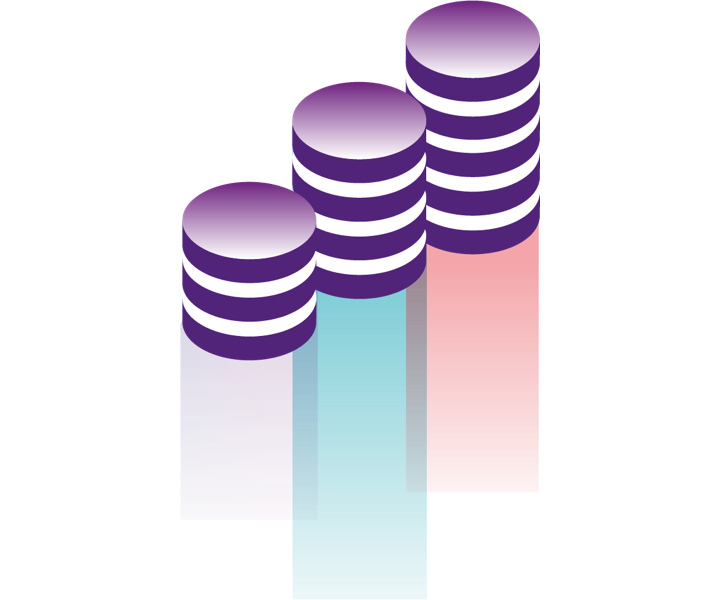What is Property Management Accounting?
Your Complete Guide

Property management accounting is the financial backbone of managing properties.
Unlike traditional accounting, it tracks income, expenses, and performance across portfolios, focusing on the unique financial needs of each property.
Effective property management accounting requires an approach that integrates these elements seamlessly, often with the support of specialised software, ensuring clarity, transparency, and compliance.
What’s Included in Property Management Accounting?
Here are some of the core functions of effective property management accounting:
Rent invoicing and arrears tracking
Service charge budgeting and reconciliation
Easily create and manage service charge budgets for each property. With the help of specialised accounting software, reconcile service charge accounts to ensure transparency and fairness for leaseholders.
Supplier payments and contractor invoices
Streamline supplier payments and contractor invoicing by setting up automated workflows. This ensures payments are made on time and reduces the risk of errors, especially when dealing with multiple suppliers across different properties.
Tenant deposit management
Manage tenant deposits securely and ensure they are correctly held in compliance with the law. Use accounting software to automatically track deposit amounts, deductions, and returns, ensuring full transparency and compliance with regulations.
Multi-property income and expenditure reporting
Easily track income and expenditure across multiple properties. Software that integrates with your accounting system will generate detailed, accurate reports, enabling you to monitor profitability and make informed decisions across your entire portfolio.
Year-end financial statements and compliance audits
Automate the generation of year-end financial statements and facilitate compliance audits. Using accounting software designed for property management, you can ensure all tax requirements are met and audit trails are clear, minimising the risk of errors or penalties.
-2.png?width=50&height=50&name=Untitled%20design%20(27)-2.png)
Why It Matters
Accurate property accounting is essential for owners, manging agents, and block managers.
Without it, managing multiple properties becomes a financial risk.
- Ensures rent is collected and arrears are chased
- Keeps service charge budgets transparent and fair
- Tracks all financial activity by unit, tenant, or landlord
- Helps you stay compliant with tax laws and lease obligations
- Saves time and reduces costly errors
- Builds trust through clear reporting that reassures landlords, tenants, and stakeholders.
How It’s Different From Regular Accounting
Property management accounting is tailored to property portfolios. Unlike general accounting, it tracks performance at the property, unit, and lease level.
| Regular Accounting | Property Management Accounting |
| One entity focus | Multi-property, multi-entity setup |
| Generic P&L | Unit-level income/expense tracking |
| Standard AP/AR | Rent cycles, deposits, arrears |
| Standard Reporting | Lease-based reports |
Quick FAQs
What is the role of a property accountant?
A property accountant manages the financial records of real estate portfolios. This includes rent collection, invoice processing, budgeting, service charge reconciliation, and financial reporting per property or client.
What’s the difference between accounting and property management accounting?
Accounting is usually basic bookkeeping. Property management accounting includes lease rules, service charges, arrears, and reporting – built around how real estate operates.
Can I use regular accounting software?
You can, but it may struggle with complex lease structures or multi-entity reporting. Specialist systems like Propman are designed for property-specific challenges.
Can I manage property accounting in Excel?
Yes, but it’s risky. Excel lacks automation, audit trails, and compliance controls. For portfolios with multiple properties or tenants, dedicated software is more reliable and scalable.
What reports are often essential in property accounting?
- Rent roll reports
- Income & expenditure per property
- Service charge summaries
- Aged debtors and arrears
- Year-end statements for landlords and clients
Our Take
Most software solutions stop at basic ledgers. Propman goes deeper – automating lease obligations, managing multiple ownership structures, service charge and syncing operational workflows with financial reports. This bridges the gap between your property team and finance team.

See how Propman could help your business
Get in touch to book a consultation, ask a question or request more info
.png?width=1920&height=941&name=GS%20white%20clear%20(Large).png)
